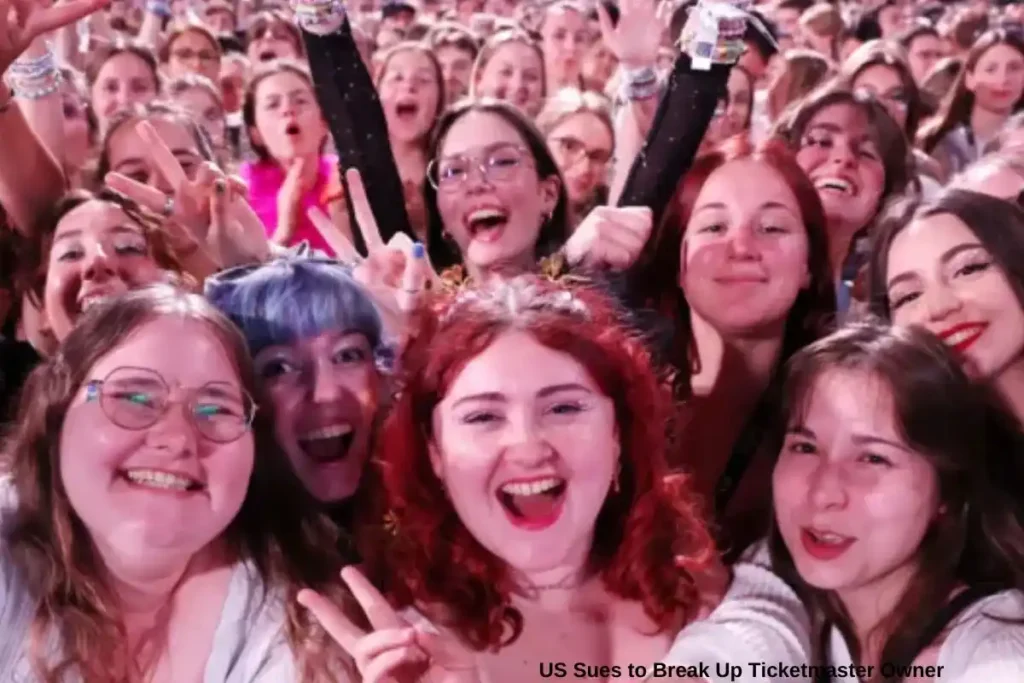US Sues to Break Up Ticketmaster Owner
The US Department of Justice (DOJ) has filed a lawsuit against Live Nation, the parent company of Ticketmaster, alleging that the entertainment giant has engaged in illegal practices to maintain a monopoly over the live music industry. The DOJ’s lawsuit asserts that Live Nation’s monopolistic behavior has stifled competition, leading to higher ticket prices and inferior service for customers.
The Lawsuit
The lawsuit, announced by Attorney General Merrick Garland, seeks to dismantle the company, which the DOJ claims has leveraged its market power to exclude competitors and control the live entertainment sector. The DOJ’s allegations are extensive, citing that Live Nation:
- Uses exclusive long-term contracts to lock out competitors.
- Threatens venues that partner with rival ticketing firms.
- Acquires potential competitors to consolidate market control.
- Ties the use of its venues to its promotion services.
- Imposes excessive fees on fans.
Market Dominance
Live Nation, which merged with Ticketmaster in 2010, is a behemoth in the live entertainment industry. The company owns over 250 venues in the US and manages about 60% of concert promotions at major venues nationwide. According to the lawsuit, Ticketmaster controls approximately 80% of all major entertainment ticket sales in the US. This dominance has positioned Live Nation as a “gatekeeper” for live music events, effectively limiting choices for venues, promoters, and artists.
Attorney General’s Statement
Attorney General Merrick Garland emphasized that Live Nation’s practices have left venues with fewer “real choices” for ticketing services and allowed Ticketmaster to impose “seemingly endless” fees on fans. He also noted that the company’s actions have squeezed out smaller promoters and restricted artists’ opportunities to perform.
“Live Nation controls the live entertainment industry in the United States because it is breaking the law,” Garland stated. “It is time to break it up.”
Live Nation’s Defense
In response to the lawsuit, Live Nation released a statement calling the claims “absurd” and arguing that the lawsuit ignores the real reasons behind higher ticket prices, such as online ticket scalping, artist popularity, and increased production costs. The company described the lawsuit as politically motivated, influenced by a White House eager to enforce competition policies from a populist perspective that misunderstands antitrust laws.
“Some call this ‘Anti-Monopoly,’ but in reality it is just anti-business,” the statement read. Live Nation also highlighted that its market share has been decreasing and that its profit margin of 1.4% contradicts claims of monopoly power.
Historical Context and Industry Impact
The 2010 merger of Live Nation and Ticketmaster was approved under the Obama administration despite concerns about the potential for market dominance. Since then, the company has faced persistent criticism from fans, lawmakers, artists, and competitors over its influence in the live entertainment industry.
In 2022, the spotlight on Ticketmaster’s issues intensified after many Taylor Swift fans experienced significant difficulties purchasing tickets for her US tour due to website failures. This incident underscored the broader frustrations with Live Nation’s control over ticket sales.
Consumer Advocacy and Future Implications
John Breyault of the National Consumers League, a long-time critic of Live Nation and Ticketmaster, stated that the lawsuit was long overdue. He acknowledged that while it is uncertain if breaking up the company will reduce ticket prices, it could lead to more competition and a less frustrating ticket-buying experience for consumers.
“Anybody who tried to buy tickets to see Taylor Swift can tell you that the experience is pretty terrible,” Breyault said. He believes that if the lawsuit is successful, consumers will have more options and the ticket-buying process will improve significantly.
Conclusion
The DOJ’s lawsuit against Live Nation represents a significant challenge to one of the most powerful entities in the live entertainment industry. As the case progresses, its outcome could reshape the landscape of live music events, potentially leading to more competition, fairer prices, and better service for fans.
(This Article Generate With Ai)
Welcome to Investopedia.co.in, your trusted source for insightful content on Finance, Business, Stock Market, and trending topics. Founded by Vivek Ranva, a seasoned professional with a master's degree in finance and taxation, we are dedicated to delivering educational and engaging articles that empower your learning journey.

